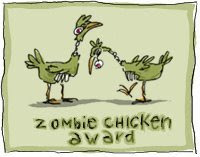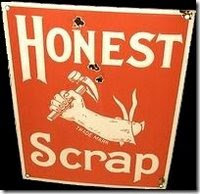Idea #1: You may not know (or understand) as much as you think you do.
Today, we move on to a second idea in the same vein.
Idea #2: The only things we can truly know about others are the things they reveal
Sherlock Holmes may have been a great detective - but I'm here to tell you, I don't think he'd have lasted five years (maybe not even five months) as a husband. Why? Because I submit that deduction is the enemy of emotional understanding. People (you may have noticed) aren't always rational, emotional responses aren't necessarily repeatable with mathematical precision. The only way to know and understand another person in a meaningful way - to understand the way someone thinks and feels - is for the person to reveal themselves to you.
Of course, the process of revealing yourself to another person is, dare I say it, complex. It requires willingness. It requires honesty. It assumes a certain level of self-examination and understanding (If you don't understand yourself, how in the world can you reveal yourself honestly to anyone else?). And it requires the right circumstances - a level of privacy that can be difficult to achieve. (I believe few people are brave enough to reveal themselves honestly to more than one or two people at a time; and oftentimes getting the opportunity to be alone with another person is hard to arrange.)
Another factor that affects this revelation process is a person's own security with him/herself; to use an old phrase - how comfortable are you in your own skin? I believe the more secure you feel about yourself, the less risk you feel in revealing yourself to others. Having this comfort level increases both the likelihood of revelation and the chances that the information shared will represent an honest glimpse of person being revealed.
I could never understand why a fiction writer would, for example, be afraid to talk about her/his life for fear of having people misinterpret their work (by attempting to infer what is autobiographical in their stories). It seems to me that, the absence of any authoritative information on an author's personal life is likely to spur deductive reasoning concerning parallels between a writer's work and private life, rather than minimize it. Of course, maybe authors just use this as a smokescreen; people are certainly entitled to keep their lives private, if they wish. But the trade-off of fame, it seems to me, is that people can express a legitimate interest and curiosity in the lives of the famous (it can and does get out of hand in many cases - but it is not in and of itself, wrong).
In any case, receiving information from the source (so long as the original source is trust-worthy and true) is certainly superior to any amount of deductive conclusions that might be obtained through Holmesian detective work. Intention or motivation are difficult or impossible to deduce from observed behaviors. Think of the situation where a man purchases an expensive gift for his beloved; is he doing this as a true expression of his strong feeling - or did he feel obligated because of a previous gift received? Is he giving the gift to compensate for the fact he can't express himself emotionally - or is the gift intended to distract his beloved from discovering that he is involved with another lover? Because deduction is not a tool best suited to the information sought, we must be prepared to engage our loved ones in a dialogue that will offer them an opportunity to reveal themselves to us.
And that leads us to tomorrow's concluding post on
"Knowing the people in your life", wherein we look at
Idea #3: How can I learn more about the people I love?
Don't miss it.
Take care.





7 comments:
Holmes knew his limitations.
Maybe you buy her jewelry because she likes jewelry.
Are we talking about Sherlock or John C.?
I thought you did the jewelry buying. I believe my credit reads "Cash Cow".
I think that I am pretty open about who I am, but I certainly withhold certain opinions depending on whose company I am in. Like you said, I think you can really only know someone so much...people hide all kinds of things in life i.e. BTK (serial killer) Good writings! Enjoying these!
Wow, this conundrum reminds me of a certain novel I just finished. Life imitates art imitates life, the cycle never ends.
I do believe some authors are autobiographical even in fiction, because they need to draw from something to portray a certain knowledge, no?
Jess: Glad you have been enjoying the recent MOL posts. I think everyone has things they keep to themselves - no matter how open they may seem. And that's probably a good thing in most cases.
SK: You're finished with Garp? Cool. Thankfully, I'm starting the last chapter myself. Hope you found the book worthwhile. Will send you an email tomorrow so we can revisit our He Read/She Read plans.
And I agree - to ring true, imagination has to be based somewhat on experience.
I figure if God had intended us to know what other people are thinking, he would have put theater marquee running lights across our foreheads. Since He didn't, the only way I know what someone is thinking is if they tell me.
Jeanne: Although Twitter comes close (in some extreme cases). Did God not invent that? {Was it...Satan?]
Seriously - I couldn't have put it better myself. In fact, I don't think I did. [Right back into humor mode. I could only sustain sobriety for one sentence.]
Post a Comment